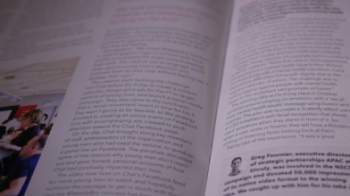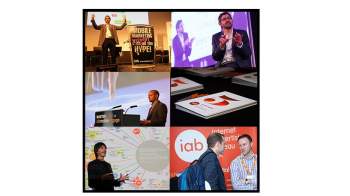We need to move digital measurement from generic KPIs to what matters most – effectiveness
Jon Mew
Jon Mew, CEO of IAB UK argues that 20 years ago, digital advertising was simple: banner and search ads were just about the only option available to target the not-yet-always-connected consumer.
Back then, success was simple too, with most marketers pining after higher CTR and lower CPC. Sophistication prevailed and soon social, mobile and native entered the scene and now we live in a world filled with an explosion of connected devices and new technologies such as VR and AI.
Things marketers never knew they needed to worry about are quickly becoming a mainstay. When I began my career at ITV, I never thought I’d hear someone say “How can I prove the ROI of an ad that ran on a smart fridge?”
As digital complexity increases, marketers are moving away from generic KPIs into what really matters – effectiveness or the impact the ad had on the consumer in driving business results.
Proving effectiveness is important to us. And because of that, so is measurement, a subject that consistently makes headlines, sparks debate and keeps marketers and media owners awake at night.
Just quickly, it’s also worth making sure that we don’t confuse viewability with effectiveness – something we hear people doing quite a lot. Viewability is a metric that determines whether the ad had the opportunity to be seen or not (ie did it load correctly and was it above the fold?). It can’t guarantee that an ad was seen by a consumer, much in the same way a publisher can’t guarantee that a reader turned a page to see an ad in a magazine.
I’ll be the first to admit there are challenges with digital, but what we – and the industry as a whole – are aspiring to is something much more multifaceted than we’ve ever seen before. Digital’s bar is higher than other media, thanks in part to its superior ability to more cost-efficiently target audiences vs traditional channels and the ease at which it can be tested and optimised almost instantly.
We need to reframe the measurement conversation and get it out of the (tech) weeds and position it as positive. But this is a thorny subject, and our role at the IAB is to uncomplicate the complex, make it better and build a sustainable future for digital to thrive. We have listened to what our members are saying and will implement a variety of initiatives to address measurement. One of these will be our new Measurement group bringing together media owners, agencies and ad tech providers to collaborate and make progress in this area on behalf of the industry.
One thing that is certain is that effectiveness – business results – is the most important thing when it comes to measurement. For example, our IMPACT study revealed a better understanding of digital advertising’s effect on both online and offline sales by measuring five FMCG brands that utilised programmatic across desktop and mobile to target consumers who shopped at Sainsbury’s. The results found that digital ads drove an average ROI of £1.47 for every £1 spent.
In the UK, digital accounts for 48% of the annual ad spend. This growth has been largely fuelled by mobile, which presents its own measurement challenges, but is a great vehicle to connect with consumers as people are spending more time online on a smartphone than any other device.
We were able to understand more about the impact of mobile through our Real_Living study, which investigated the degree to which the rise of internet-connected devices have impacted the traditional TV watching living room dynamic, and how people really divide their finite attention across screens.
The Real_Living study exposed two key myths: 1) that TV is the dominant screen – in reality, only 50% of UK adults say the TV is their focal point and 70% report usually using a connected device whilst watching TV; 2) TV content/advertising determines behaviours in the living room – device tracking showed that more online activity actually took place during a programme than during an ad break.
As the proliferation of connected devices continues, we must plan for the new ways consumers engage with technology and its implications. Luckily, with more specialised companies like Blis and GroundTruth, we have the potential to track consumers, and their activity in real-time, to see what they do in the real world.
While still not perfect, audience measurement is getting better all the time. UK Online Measurement (UKOM) was formed in 2009. Co-owned by the IAB and the AOP with board representation from the IPA and ISBA, UKOM is the entire industry coming together to set and govern an independent and objective standard for UK online audience measurement.
Originally designed for ‘text and pics’ website measurement only, UKOM’s current partner comScore has developed the capability to measure online behaviour of the entire UK population (6+ for pc, 13+ for mobile and smartphone) across desktop, tablet and smartphones (android and iOS), browsers and apps, for text, pictures and video. The UKOM-endorsed suite of audience measurement products gives the UK media industry the independent and objective online measurement system it needs to be as confident in online media planning as it always has been with other media.
So whether it’s measuring audiences reach or the effectiveness of messages on smart fridges, we need to remove confusion in order to make progress. We need a realistic expectation on what can be achieved without being unambitious. We need to figure out what we can do now that’s useful for brands. And we will continue to work with the industry to set a high bar for digital because digital is great whether we’re connecting consumers brands or using smart fridges to make sure we never run out of cheese.
Related content
The five rules of effectiveness in digital marketing
Learn moreAn essential toolkit for driving digital effectiveness
Learn moreQuick Q&A - Brand Safety
Learn moreIAB UK bids farewell to flagship Mobile Engage event
Learn more
Rediscover the joy of digital advertising
Champion connections instead of clicks. Capture audiences' imaginations, not just their attention. Boldly move to your own beat instead of letting tech set the pace. It’s time to rediscover the joy of digital.



